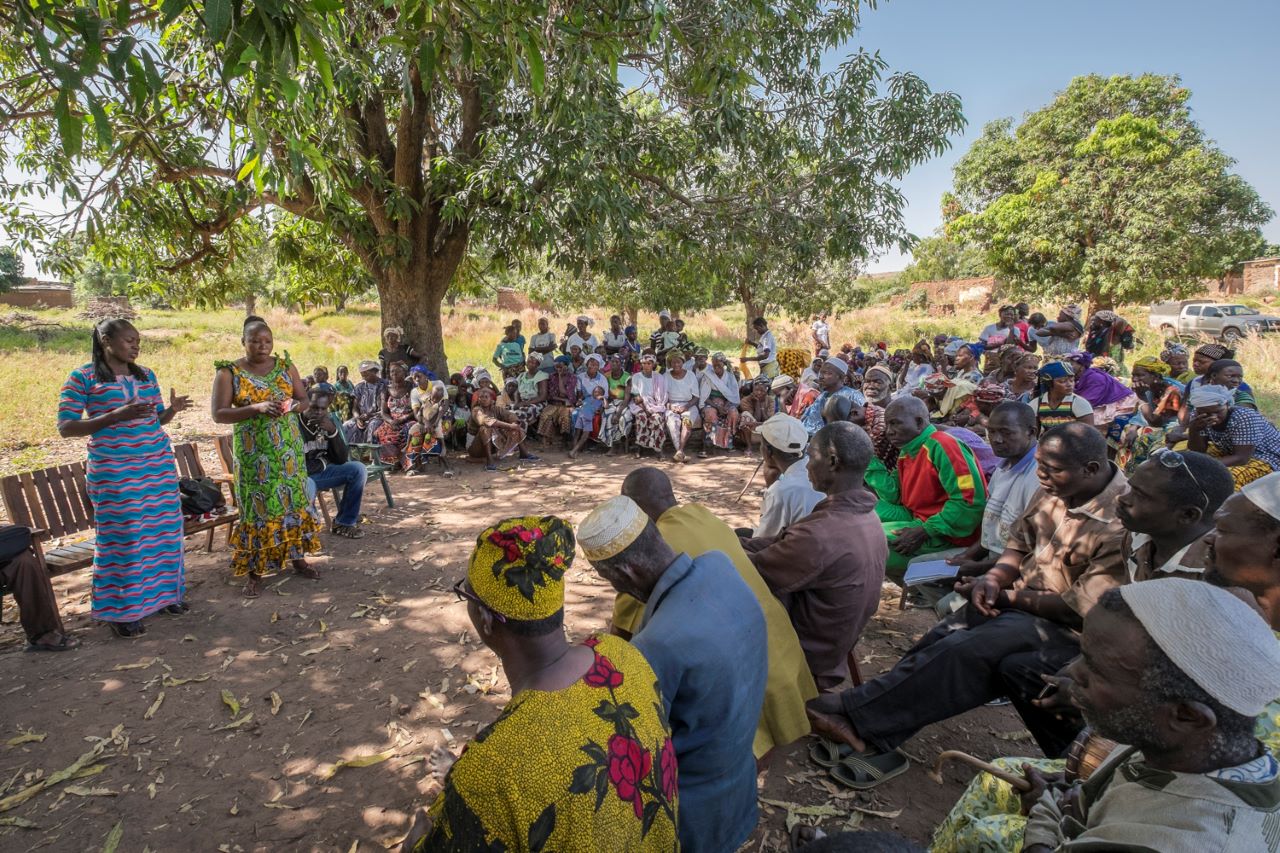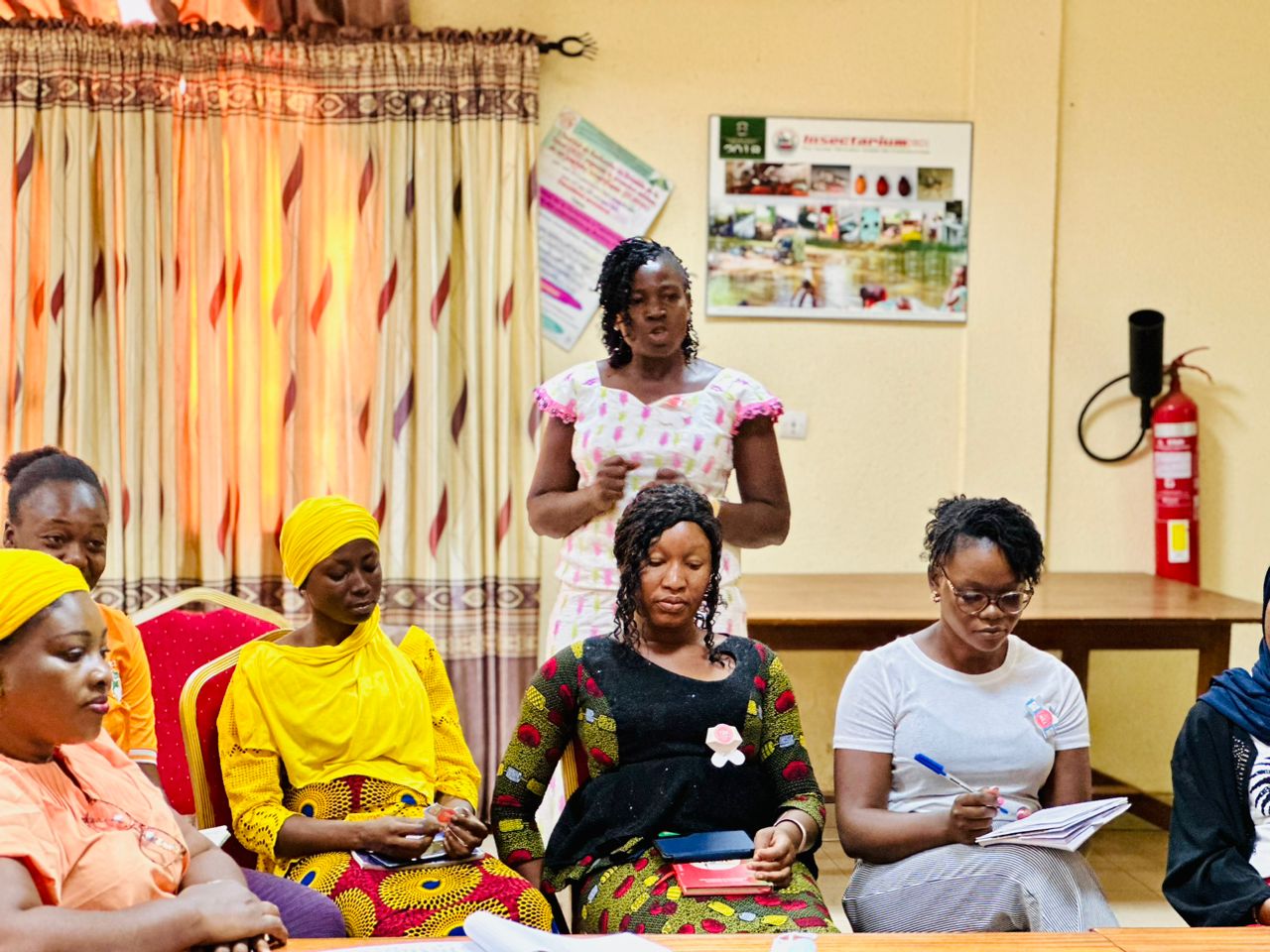Malaria has a devastating impact, extending far beyond its direct threat to health and lives. It perpetuates a vicious cycle of inequity, creating additional challenges for communities and social groups already facing economic and societal issues. As the world gets together to celebrate World Malaria Day this week on April 25, this year’s theme: “Gender, Equity and Human Rights” reminds us of the need to create a more equitable future for the generations to come.

Target Malaria’s stakeholder engagement officers engaging local communities in Burkina Faso. Photograph: Target Malaria
Health equity means that everyone has equal rights and access to the highest standards of healthcare. Regrettably, this remains a distant reality for many communities living with the burden of malaria. Women and girls are particularly impacted, as they often face higher risks and vulnerability to malaria infection and lack decision-making power and control over resources. This hinders their ability to access life-saving tools and to attend healthcare appointments or seek treatment for themselves or their children. Pregnant women, who experience reduced immunity, are even more vulnerable to malaria, with approximately 10,000 maternal deaths caused by the disease every year. On top of this, as women often assume the role of primary caretakers, this cycle of inequity perpetuates its effects on children. Nearly every minute, a child under five dies of malaria in Africa.
To create a more equitable future that safeguards everyone’s human rights, it is crucial that we accelerate the fight against malaria. While existing tools to control malaria have helped save millions of lives, they are not enough to eliminate the disease. Investing in research and innovation is critical to expand and diversify the malaria control toolbox and help address current challenges, such as those of growing insecticide and drug resistance.
In 2012, I joined Target Malaria, an international not-for-profit research consortium working to develop gene drive technologies to reduce malaria transmission. One of the advantages of gene drive technologies is that, because the mosquitoes themselves would “do the work”, they have the potential to reach everyone in the community, regardless of their geographic location, their gender, or their social status.

Lea Pare Toe, Stakeholder Engagement Lead at Target Malaria Burkina Faso interacting with stakeholders. Photograph: Target Malaria
I manage a team of anthropologists, sociologists and stakeholder engagement experts who conduct engagement at the community, regional and national levels in Burkina Faso. Part of my work is centered around engaging local communities who are affected by our research and sharing information with them about our work. Taking into account communities’ knowledge, perspectives and potential concerns is critical to improve our work and ensure it meets the needs of those most affected by malaria.
Through my work, I have become keenly aware of the many challenges faced by women and young African girls including entrenched gender stereotypes, expectations of unpaid work and lack of female role models. These pervasive barriers hinder their pursuit of careers in fields where more women are needed – such as those of science and research.
Women are at the forefront of the fight against malaria, bearing the heaviest burden while serving as the backbone of the care economy. Empowering them means uplifting entire generations and nations. This World Malaria Day, my hope is to inspire more women to join careers in science, to shatter social barriers and stereotypes and to contribute to paving the way for more equitable health innovations.
Recent posts
